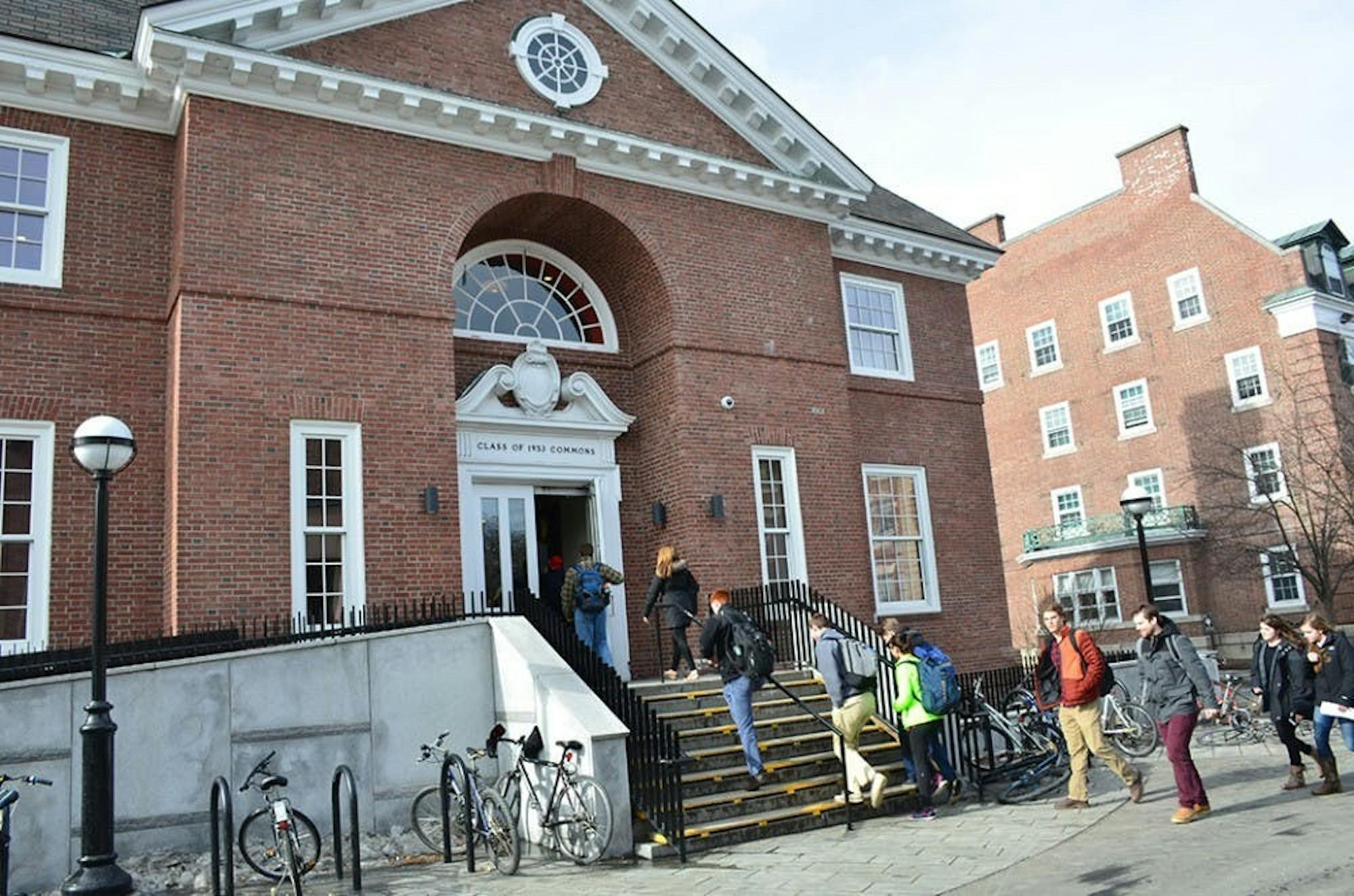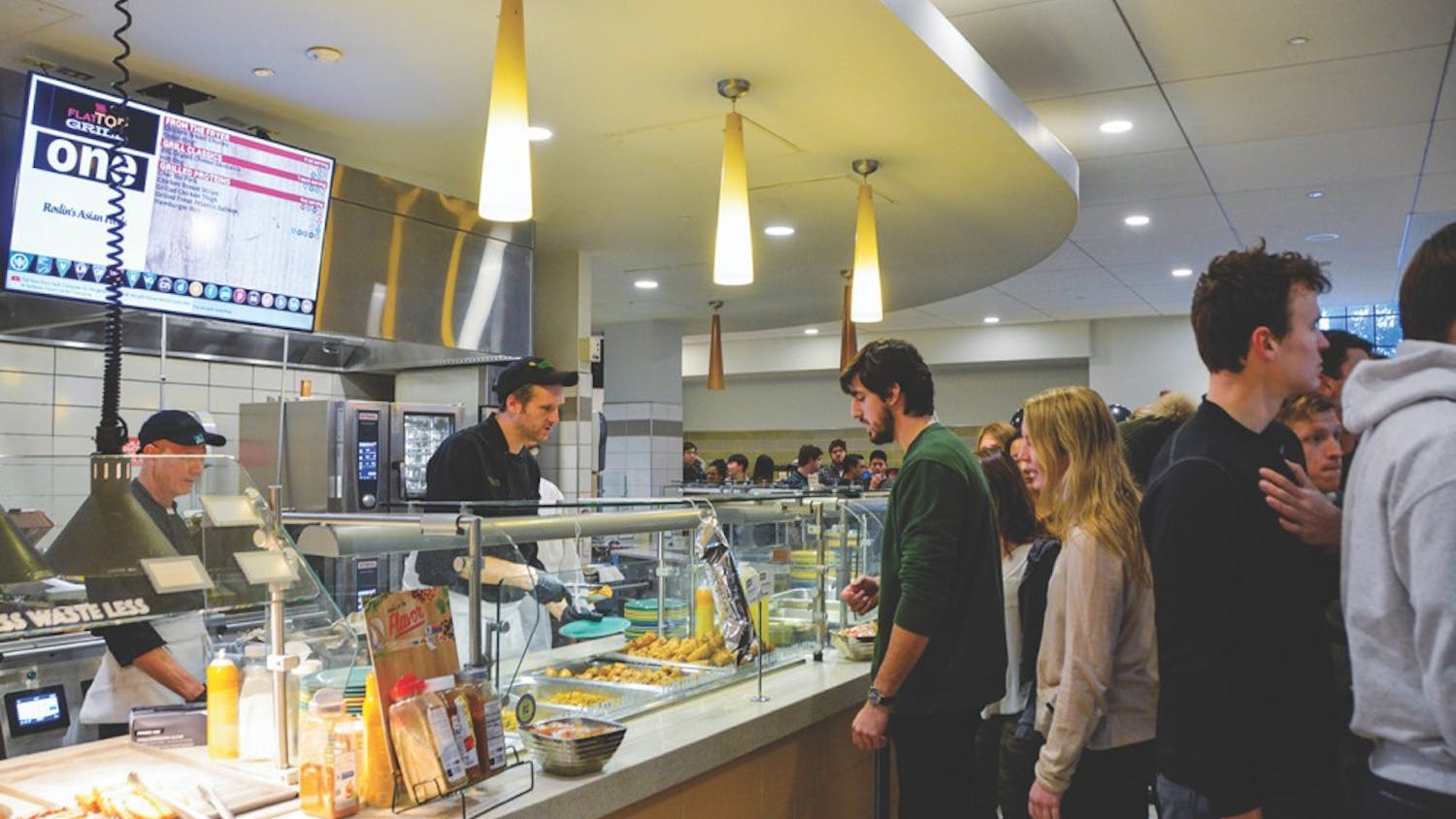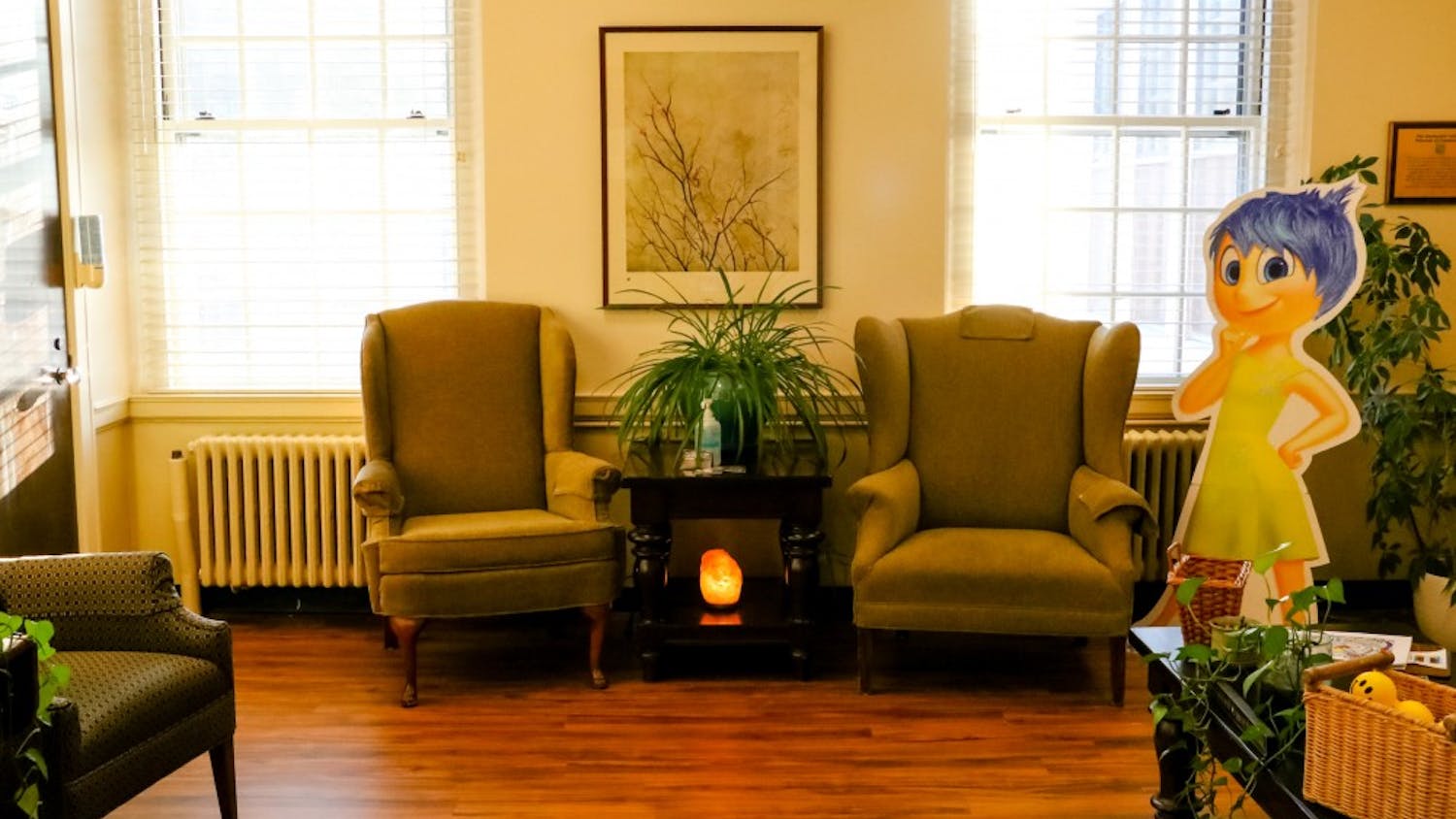Contrary to popular belief, Dartmouth Dining Services does not charge students a fee for assumed theft as part of their dining plans.
Many students believe that DDS charges a fee of $100 to $200 to make up for the price of stolen goods from dining facilities — such as taking extra fruits to-go or a coffee mug from the Class of 1953 Commons.
Arnold Fuentes ’23 said he first heard this rumor at the beginning of his freshman fall.
“I don’t know how it started, but people started telling me, ‘Oh, you know you’re charged for stealing, so you might as well just steal something anyway,’” Fuentes said. “I was told that you’re already charged in the event that you might steal, so that leads you to assume it’s not wrong to steal.”
However, according to DDS director Jon Plodzik, this is a myth.
“There is no such charge from dining, and there’s never been such charge from dining,” Plodzik said. “The price of our program is really based on the variables that make up our expenses which are labor, food and the general supply that goes into providing the goods you all enjoy. We have no budget line associated with the assumption that you’re taking stuff with you.”
Plodzik said he does notice that some items “disappear,” especially at the beginning of a school year, but that many items return toward the end of a term. Utensils that most often disappear include coffee mugs, salt and pepper shakers and flatware. The end of the year sees returns ranging from students bringing back a “surprising number” of Green2Go containers to flatware found in kitchens around campus. He added that DDS would prefer not to spend on items already purchased, but if something is not returned in sanitary condition, it is thrown out.
DDS associate director Don Reed added that it is difficult to estimate the number of items that are stolen from the College’s dining facilities since there are other reasons that contribute to a decrease in inventory.
“We don’t do a physical inventory at the beginning or end of the term, so there’s not a specific number we can attribute to possible misplacement,” Reed said. “With coffee mugs and plates, there is a level of breakage — if they are dropped, they will crack. Some of the items that are gone are the cause of use or wear and tear, which may not be a result of someone taking it out of the building.”
However, some students cite the higher prices of many food items as incentive to steal.
The prices of some food items at the College are comparable to prices in Hanover. For example, a bag of chips or a cup of pineapples are priced at around $1 and $5, respectively, at the College’s dining services as well as the CVS in Hanover.
But Dartmouth charges almost twice the price that the Hanover CVS does for other similar goods. At the Courtyard Cafe, the price of a fresh fruit cup is $5.85, but the prices at CVS range from a cup of fresh mixed fruits for $3.69 to strawberries for $6.49. Additionally, both CVS and the College sell eight-ounce bottles of the same brand of kefir, but charge $1.49 and $3.00, respectively. The prices of cold sandwiches also contrast; at the College, a cold sandwich at the Courtyard Cafe costs $9.75, greater than what is covered by a lunch meal swipe, and at CVS, a cold sandwich costs at most $5.79.
Plodzik said that the goal of DDS is to deliver a program that is inclusive of the Dartmouth community — and that there are better alternatives to stealing.
“Any time you take something without paying for it, it’s not right ... You should let us know if you’re having trouble accessing food,” Plodzik said. “Food and education go hand-in-hand; you can’t focus if you’re hungry. When folks don’t play by the rules, everyone else picks up that tab.”
Although many dining facilities on campus have security measures such as camera systems, these are not often utilized for the purpose of identifying students who steal. Reed said that these are mostly helpful for “theft of a non-food nature, like a computer or an expensive jacket.”
Plodzik added that DDS is not interested in punitive measures against students who are caught stealing. He said that the profit loss associated with the misplacement of items is not a primary focus, and that a more communicative approach is taken if a student is found “about to make a bad decision.”
“To help curb poor choices on some of the weekends that are celebratory, we’ll have Safety and Security join us that evening,” Plodzik said. “We have staff that care, so if we run into a problem, someone will go and talk them out of it.”
Dartmouth’s dining program is not the least expensive, nor is the most expensive program among comparable schools and other Ivy League institutions, according to Reed. Additionally, when items are not in season, prices tend to be higher. Thus, DDS often makes the decision to not provide certain food items if the prices are “prohibitive,” Reed said.
Plodzik added that high prices also reflect the wages and benefits provided to DDS employees — an entry-point of $17 per hour and meal-plan credits for student workers.
“One thing that makes us unique is that those who work with us are earning a living wage ... it costs us more to provide services than others might since we’re recognizing people need to live and can provide for their families without working four jobs,” Plodzik said.




